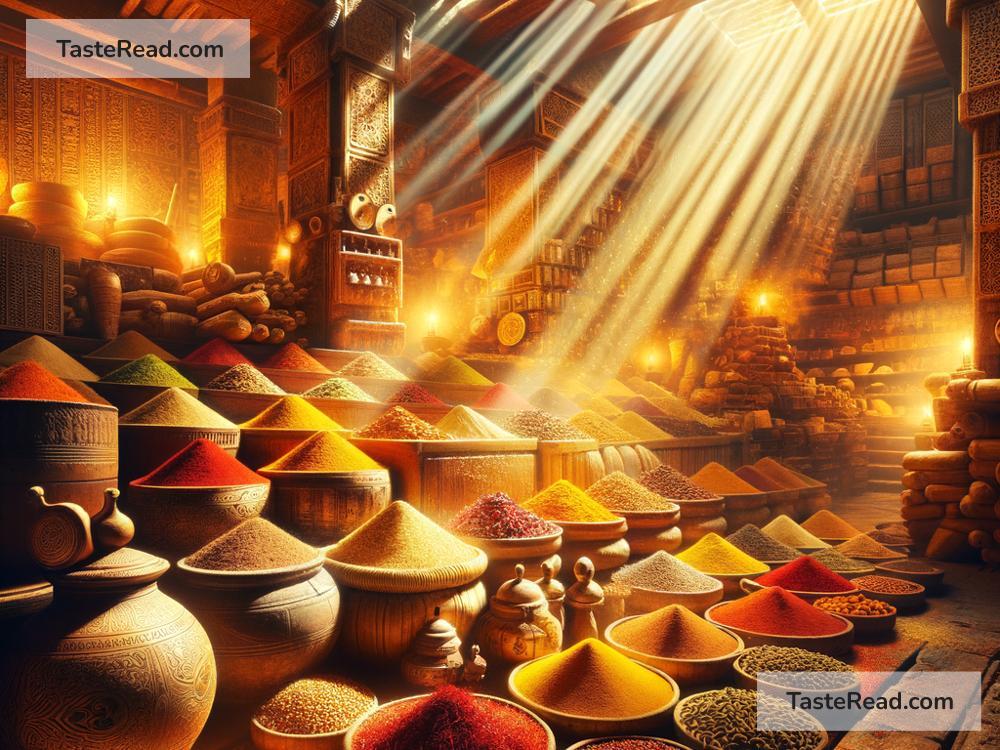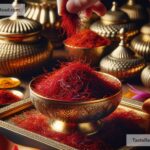How Spices Became Keys to the Afterlife
When we think of spices today, we often imagine the rich smell of cinnamon or the sharp taste of pepper seasoning our favorite dishes. But centuries ago, spices were more than just ingredients in food—they were considered sacred objects, revered for their spiritual, healing, and cultural significance. Across ancient civilizations, spices were believed to hold the key to unlocking the mysteries of the afterlife. These tiny treasures were deeply intertwined with religion, rituals, and the idea of life beyond death.
Let’s travel back in time and explore how spices became symbols of immortality and keys to the afterlife.
Spices as Sacred Offerings
Spices have been valued for thousands of years, not just for their aroma and taste, but for their spiritual properties. Ancient civilizations believed that spices had a divine connection, often using them in rituals to honor gods and spirits. For example, in ancient Egypt, spices like frankincense and myrrh were considered sacred. They were offered to gods in temples, burned as incense during prayers, and used in elaborate ceremonies to connect with the divine.
These fragrant spices were thought to carry prayers up to heaven, acting as a bridge between humans and gods. Their aromas represented purity and were believed to purify the soul, making it worthy of entering the afterlife. For this reason, spices became essential in burial rituals.
Spices and Egyptian Mummification
One of the most fascinating examples of spices being linked to the afterlife comes from ancient Egypt. The Egyptians believed strongly in life after death. They thought that preserving the body was essential for the soul’s safe journey to the next world. This is where spices played a major role.
To prepare for the afterlife, Egyptian priests used spices to embalm and preserve the bodies of the dead. Myrrh, cinnamon, anise, and other aromatic spices were used during the mummification process. These spices helped prevent decay while also adding a sacred fragrance to the body. Myrrh, in particular, had antibacterial properties, making it a practical choice for preserving the body while also serving as a symbol of purity.
But the use of spices wasn’t purely scientific—it was deeply spiritual. Egyptians believed that the sweet, fragrant smell of spices attracted the gods and ensured that the soul of the deceased would be welcomed in the afterlife. Spices were often placed inside tombs along with jewelry and everyday items that the person might need in the next world. These fragrant gifts were seen as tools for ensuring a smooth transition to immortality.
Spices in Other Ancient Cultures
Spices weren’t just important to the Egyptians. Many ancient cultures connected spices to death and spirituality in fascinating ways. In ancient India, herbs and spices were central to funeral rites and religious ceremonies. Incense made from sandalwood, clove, and turmeric was burned during rituals to cleanse the soul of the deceased and ward off negative energies.
In ancient Greece and Rome, spices like oregano, cumin, and saffron were used during burial practices and memorials. Perfumed oils and spice blends were applied to the body of the dead, symbolizing honor and respect while preparing them for their journey to the afterlife. Wealthy individuals often had more elaborate spice ceremonies, as owning exotic spices was a sign of status and power.
In China, spices weren’t only used for medicinal purposes; they were also burned in temples to communicate with ancestors and gods. Rituals involving fragrant spices were thought to bring peace to the souls of the deceased and ensure harmony between the living and the dead.
Spices and Symbolism
Over time, spices became symbols of eternal life and transformation. Their enchanting smells and healing properties represented purification, renewal, and the journey of the soul. Exotic spices like frankincense and myrrh took on even greater meaning, as they were scarce and difficult to obtain. Their rarity added to their mystique, making them even more valuable in spiritual practices.
Religious texts, including biblical stories, often mention spices being used in burial ceremonies. For example, when Jesus was born, the three wise men brought gifts of gold, frankincense, and myrrh. Later, spices were used to anoint Jesus’ body after his crucifixion—a reminder of the link between spices and the idea of life beyond death.
A Modern-Day Reflection
Today, spices are more commonly associated with cooking rather than the afterlife. But their history remains deeply rooted in ancient spiritual practices. When we sprinkle cinnamon on our latte or add a pinch of cumin to our stew, we may not realize that these everyday ingredients once held profound meaning for countless cultures. They were symbols of life and death, used to honor loved ones and prepare them for eternity.
The idea that spices could guide souls to the afterlife reminds us how deeply connected humanity has always been to nature. Spices, in their purest form, represent more than flavor—they represent the mysterious journey of life itself.
Next time you open your spice cabinet, take a moment to appreciate the rich history behind those tiny bottles. Long ago, these spices were believed to hold the keys to immortality and connect us with a greater power. While their role may have evolved over time, their legacy continues to inspire us with a sense of wonder and awe.


